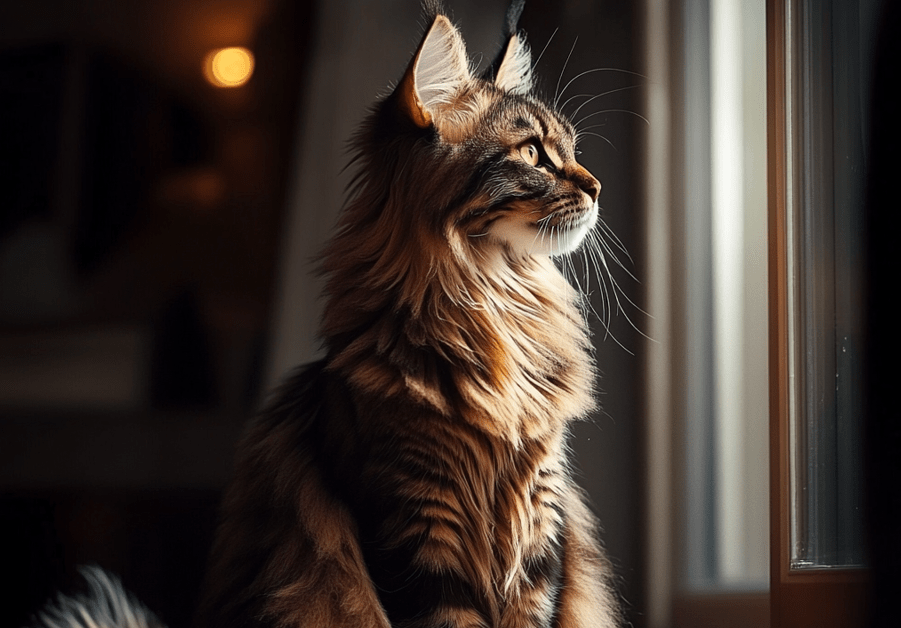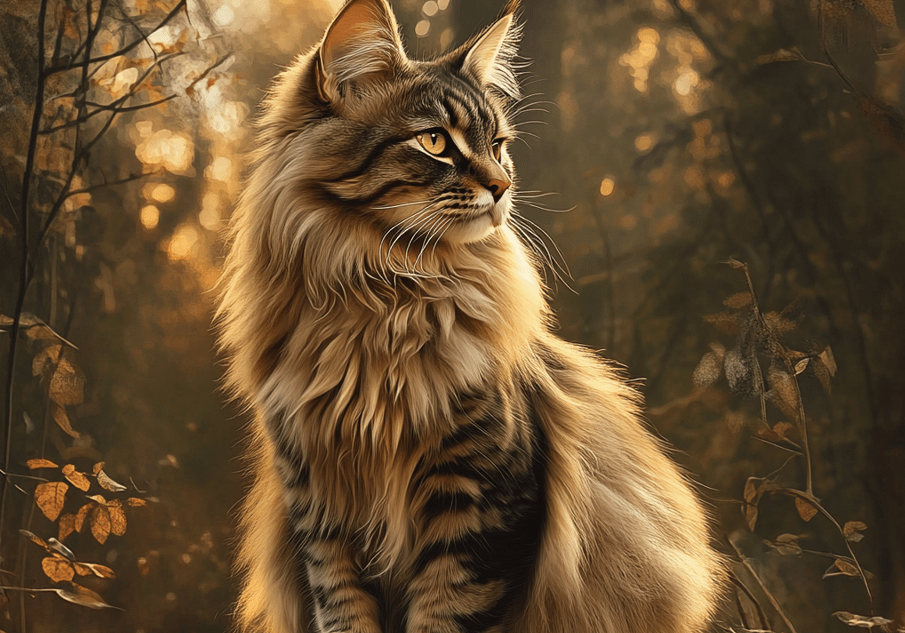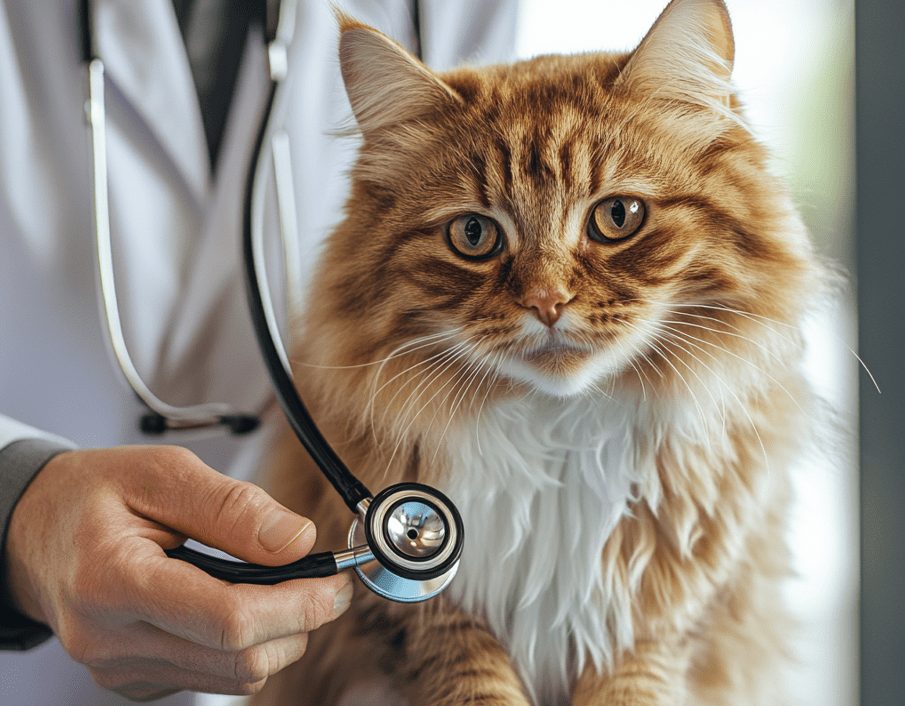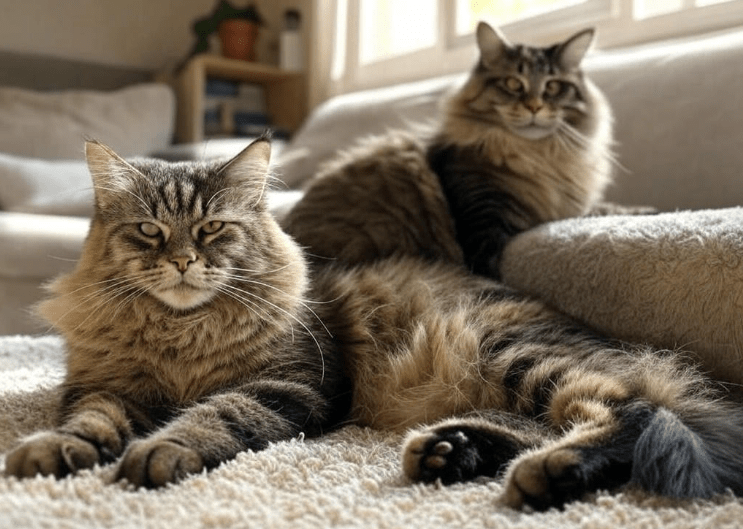
Maine Coon territorial marking is a common behavior among these majestic, large-boned cats known for their friendly and sociable nature. However, when a Maine Coon starts marking its territory, it can lead to frustration for pet owners. Whether it’s spraying, scratching, or other forms of scent marking, this behavior is a natural instinct but can be managed effectively with the right strategies. This comprehensive guide will explore why Maine Coons mark their territory, how to identify the triggers, and actionable steps to prevent and address this behavior, ensuring a harmonious home environment for both you and your feline friend.
Understanding Maine Coon Territorial Marking
Maine Coon territorial marking is a way for these cats to communicate and establish their space. Unlike smaller breeds, Maine Coons have a strong presence and may feel compelled to assert dominance or secure their environment, especially in multi-pet households. Territorial marking can manifest in several ways, including:
Urine Spraying: A cat backs up to a vertical surface, tail raised, and sprays urine to mark their territory.
Scratching: Maine Coons may scratch furniture, walls, or other surfaces to leave visual and scent markers.
Rubbing: Cats rub their faces or bodies against objects to deposit pheromones from scent glands.
Vocalizations: Excessive meowing or yowling can also signal territorial behavior.
Maine Coons, often referred to as “gentle giants,” are not inherently aggressive, but their size and instincts can amplify marking behaviors if not addressed. Understanding the root causes is the first step to managing this issue effectively.
Why Do Maine Coons Mark Their Territory?
Several factors contribute to Maine Coon territorial marking, including:
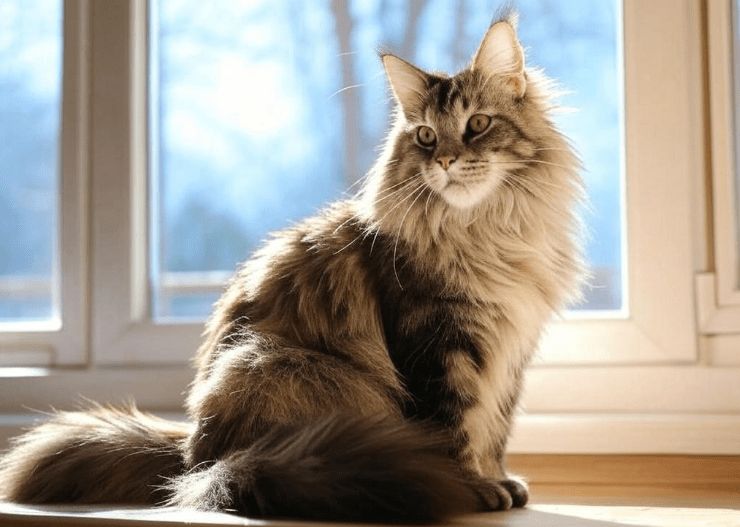
Instinctual Behavior: Cats are naturally territorial animals. Maine Coons, with their wild-like appearance and lineage tracing back to rugged New England roots, may exhibit strong instincts to claim their space.
Stress or Anxiety: Changes in the household, such as new pets, people, or rearranged furniture, can trigger marking as a coping mechanism.
Unneutered or Unspayed Cats: Intact Maine Coons are more likely to spray or mark due to hormonal drives, particularly in males.
Competition: In multi-cat homes, Maine Coons may mark to establish dominance or secure resources like food, litter boxes, or attention.
Medical Issues: Urinary tract infections, kidney issues, or other health problems can cause inappropriate urination, which may be mistaken for marking.
Environmental Triggers: Outdoor cats, unfamiliar smells, or even loud noises can prompt a Maine Coon to mark their territory defensively.
By identifying the specific cause, you can tailor your approach to address Maine Coon territorial marking effectively.
Recognizing the Signs of Territorial Marking
Before addressing the behavior, it’s crucial to confirm that your Maine Coon is indeed marking territory and not exhibiting other issues. Here are key indicators:
Location of Urine: Territorial spraying typically occurs on vertical surfaces like walls, furniture, or doorframes, unlike litter box issues, which involve horizontal surfaces.
Posture: A cat that sprays will stand with its tail raised and quiver while releasing small amounts of urine.
Strong Odor: Marking urine has a pungent smell due to higher concentrations of pheromones.
Repetitive Behavior: Marking is often repeated in the same areas, creating a pattern.
Scratching Specific Areas: Maine Coons may repeatedly scratch certain furniture or doorways to leave their scent.
If you’re unsure whether the behavior is marking or a medical issue, consult a veterinarian to rule out health problems like urinary tract infections or bladder stones.
How to Prevent and Manage Maine Coon Territorial Marking
Managing Maine Coon territorial marking requires a combination of environmental adjustments, behavioral training, and, in some cases, medical intervention. Below are proven strategies to help you tackle this issue.
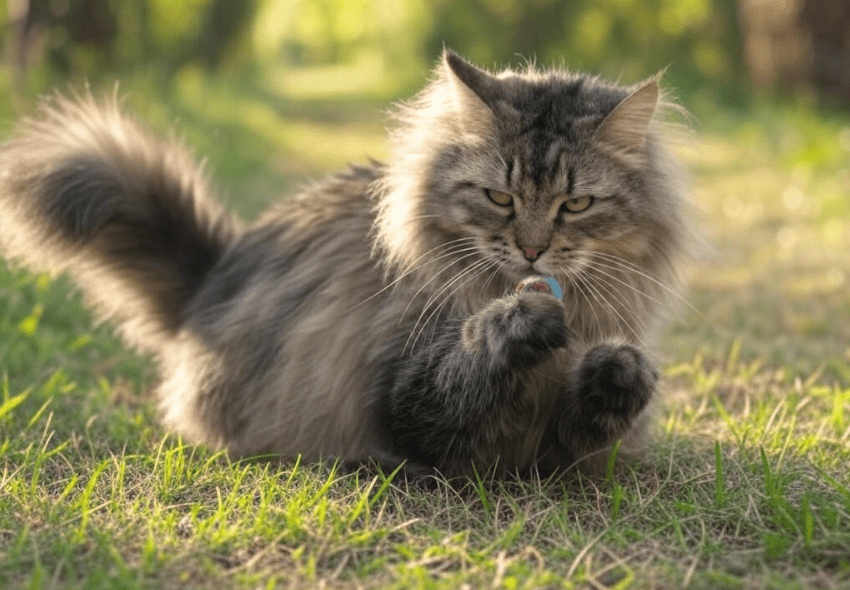
1. Spay or Neuter Your Maine Coon
One of the most effective ways to reduce territorial marking is to spay or neuter your Maine Coon. This is especially important for cats that haven’t been altered before reaching sexual maturity (around 6-12 months). Spaying or neutering can:
1.Reduce hormonal urges to spray or mark.
2.Decrease aggressive or dominant behaviors.
3.Lower the likelihood of roaming or fighting with other cats.
If your Maine Coon is already marking, spaying or neutering may not eliminate the behavior entirely but can significantly reduce its frequency. Consult your veterinarian to discuss the best timing for this procedure.
2. Create a Stress-Free Environment
Maine Coons are sensitive to changes in their surroundings, and stress can exacerbate territorial marking. To create a calming environment:
Provide Safe Spaces: Offer high perches, cat trees, or cozy hiding spots where your Maine Coon can retreat. Their large size means they need sturdy, spacious options.
Maintain Routine: Stick to consistent feeding, play, and litter box cleaning schedules to provide stability.
Use Pheromone Diffusers: Products like Feliway mimic calming feline pheromones, reducing stress and marking behaviors. Place diffusers in areas where marking occurs.
Minimize External Triggers: Block windows if outdoor cats are causing agitation, or use white noise machines to dampen disruptive sounds.
3. Optimize Litter Box Setup
A proper litter box setup can deter inappropriate urination and encourage good habits. Maine Coons, due to their large size, have specific needs:
Size Matters: Use oversized litter boxes to accommodate their frame. A box at least 1.5 times the length of your cat is ideal.
Multiple Boxes: In multi-cat homes, follow the “n+1” rule (one litter box per cat plus one extra). Place boxes in quiet, accessible locations.
Clean Regularly: Scoop daily and change litter weekly to prevent aversion. Maine Coons are fastidious and may mark if the box is dirty.
Unscented Litter: Avoid heavily scented litters, as they can deter sensitive Maine Coons.
4. Address Multi-Cat Dynamics
If you have multiple cats, territorial disputes can trigger marking. To foster harmony:
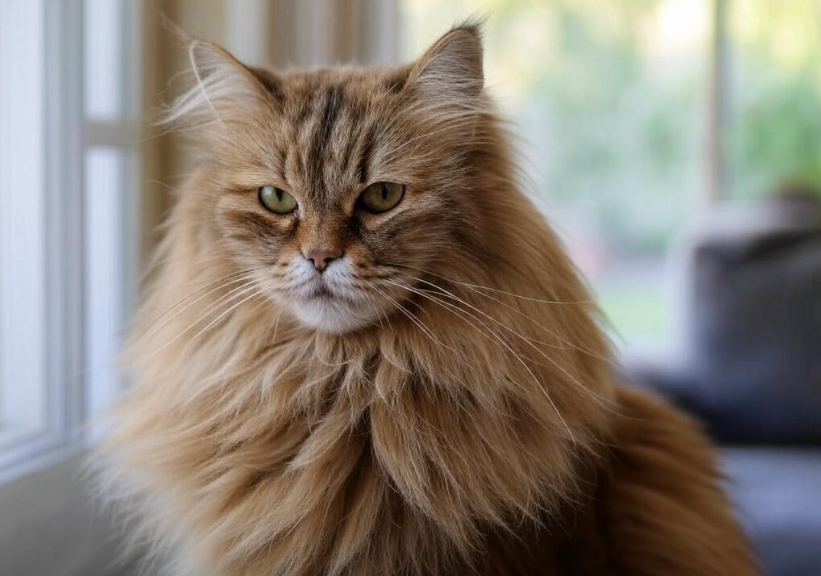
Introduce Cats Gradually: When adding a new pet, use scent swapping and controlled introductions to reduce tension.
Provide Resources: Ensure each cat has access to their own food bowls, water, litter boxes, and sleeping areas to prevent competition.
Monitor Interactions: Watch for signs of bullying or aggression, and intervene with distractions or separation if needed.
5. Clean Marked Areas Thoroughly
Cleaning marked areas promptly prevents your Maine Coon from returning to the same spots. Use these steps:
Blot, Don’t Rub: Absorb urine with paper towels to avoid spreading it.
Use Enzymatic Cleaners: Products like Nature’s Miracle or Anti-Icky-Poo break down urine molecules, eliminating odors that attract cats back to the spot.
Avoid Ammonia-Based Cleaners: Ammonia mimics the smell of urine, encouraging re-marking.
Cover Marked Areas: Temporarily cover furniture or walls with plastic or aluminum foil to deter scratching or spraying.
6. Provide Enrichment and Stimulation
Boredom or pent-up energy can contribute to territorial marking. Maine Coons are intelligent and active, requiring ample mental and physical stimulation:
Interactive Toys: Use puzzle feeders, laser pointers, or feather wands to engage their hunting instincts.
Scratching Posts: Offer sturdy, tall scratching posts to satisfy their need to mark through scratching. Place posts near marked areas to redirect behavior.
Playtime: Dedicate 15-30 minutes daily to interactive play to burn off energy and reduce stress.
Window Perches: Allow your Maine Coon to observe the outdoors, which can be mentally stimulating without triggering territorial responses.
7. Consult a Veterinarian
If marking persists despite your efforts, a veterinarian can help identify underlying issues. They may:
1.Conduct tests to rule out medical conditions like urinary tract infections, diabetes, or kidney disease.
2.Recommend behavioral medications for severe anxiety or stress.
3.Refer you to a feline behaviorist for tailored advice.
8. Work with a Feline Behaviorist
For complex cases, a certified feline behaviorist can assess your Maine Coon’s environment and behavior, offering customized solutions. They may suggest advanced techniques like counter-conditioning or desensitization to address specific triggers.
Common Mistakes to Avoid
When addressing Maine Coon territorial marking, avoid these pitfalls:
Punishing Your Cat: Yelling or physical punishment can increase stress, worsening the behavior.
Ignoring Medical Issues: Always rule out health problems before assuming the issue is behavioral.
Inconsistent Training: Be patient and consistent with strategies, as behavior change takes time.
Using Scented Cleaners: These can attract your cat back to marked areas.
Long-Term Strategies for Success
Preventing Maine Coon territorial marking in the long term requires ongoing effort:
Regular Vet Checkups: Annual exams can catch health issues early, preventing marking caused by discomfort.
Environmental Enrichment: Continuously update toys, perches, and play routines to keep your Maine Coon engaged.
Monitor Changes: Be proactive about addressing new stressors, such as household changes or new pets.
Positive Reinforcement: Reward good behavior with treats, praise, or play to reinforce desired habits.
Conclusion
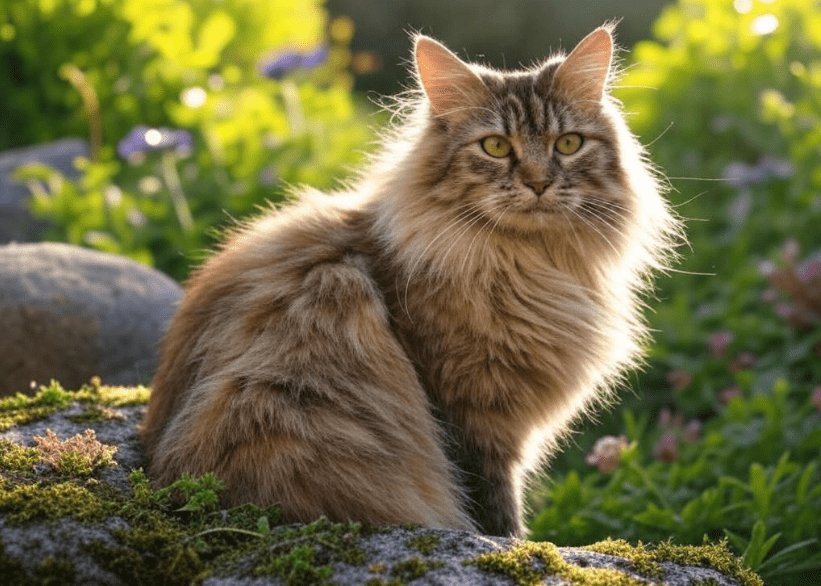
Maine Coon territorial marking is a manageable behavior with the right approach. By understanding the causes—whether instinctual, environmental, or medical—you can implement effective strategies to reduce or eliminate marking. From spaying/neutering and optimizing litter boxes to providing enrichment and cleaning thoroughly, each step brings you closer to a peaceful home. With patience, consistency, and love, you can help your Maine Coon feel secure without relying on territorial marking, strengthening the bond between you and your gentle giant.

